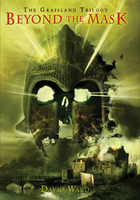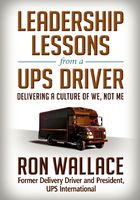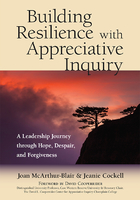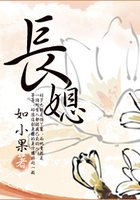THE SPEAR
The Second, feeling of the tusk,
Cried, "Ho! what have we here,
So very round and smooth and sharp?
To me 'tis mighty clear
This wonder of an Elephant
Is very like a spear!"
—From "The Blind Men and the
Elephant," by John Godfrey Saxe
THE TALE OF A VERY BAD SOLDIER
I don't know much about being a soldier. I worked very hard at avoiding military service. I conscientiously objected to the notion that the military could settle anything, or could make anyone safer, especially with me as a part of it. Above all, I objected to the idea of blindly following anyone else's orders, no matter how much sense the orders seemed to make to him. My head still echoes with stories of the Somme, Antietam, and Gallipoli, where generals' delusions played out into fields of freshly planted conscripts. I would have made a very bad soldier, and I clearly had no business in the military. I was surprised when my draft board agreed with my self-assessment and decided that it didn't want me!
I learned a little bit about projects in that process.
I came of age in the late '60s, when almost everyone I knew had grown to oppose the Vietnam War effort. I was dedicated to staying out of the service, so I worked hard to keep my options open. When I registered for the draft, I requested every available hearing, procedure, and due process. The draft board's Evil Secretary (or so I called her) scowled at me as she reviewed my completed forms. A few weeks later, I was ordered to appear for a qualifying physical examination in a city 200 miles away. I prepared for the examination by fasting for several days, arriving, after a long bus ride and a sleepless night, just as fit as most other eighteen-year-olds. The doctors, none of whom spoke enough English to understand anything any of us "inductees" said, evaluated us as if we were horseflesh. I was classified 1-A, qualified for immediate induction.
This evaluation process reminds me of the "resource allocation" processes employed to populate projects, where leaders assess potential contributors according to superficial characteristics without ever understanding what strengths or weaknesses each might want to bring to the assignment. No one thinks to ask what the inductee wants out of his or her work. The inductees might neglect even to ask themselves. The subject just doesn't come up. I cannot today engage in these exercises without remembering how demeaning it felt to be one of those horses at auction.
A few months later, thanks to a remarkably low lottery number, the mail brought a notice for me to appear for induction into the service. I read it and simply threw it away. The phone rang on the day I had been ordered to appear. The Evil Secretary at the draft board was calling to find out where I was. "I am home," I brazenly told her, "and I will not be down today." Hadn't I requested the option of exercising my rights to a full hearing with the draft board before being inducted? Her end of the line grew silent. After a moment, she came back on the line. "Well ... Sir (she called me "Sir"!), I ... a hearing. We will get ... back to you with a date."
Whew! This experience reinforced my idea of keeping my options open. Especially when doubting another's judgment, I choose variety. I had at the time no idea what any of the options on those forms meant, but I suspected that the more options I chose, the more choices I would retain. This may seem unpatriotic to those who simply answered the call. This might make me a very bad soldier, but when a plan doesn't make sense to me, I'm pretty much paralyzed in the face of it. I am as a result very sensitive to the need to make meaningful plans—not ones that simply make sense to me, but ones that make sense to those who will have to follow them. The system that selected, processed, and ordered me around felt designed simply to dehumanize me, and it rendered me nearly incapable of complying. I didn't like being treated as an object. I work very hard today to avoid objectifying my project team members.
I didn't know then that I was acting in what modern systems scientists would characterize as a highly ethical manner. Cyberneticist Heinz von Foerster characterized a healthy human system as one that reveres variety over similarity, choice over command. He proposed an ethical imperative, "Act always so as to increase the number of choices." My introduction to "bad" soldier behavior, wrestling with the draft, would serve me very well as I began assuming fuzzy responsibilities on complex projects.
The Evil Secretary called back a few days later. I could argue my case before the draft board in six weeks. After considering the options, I decided to pursue a "nonmilitary conscientious objector" classification. The draft-resister literature rated nonmilitary CO as next-to-impossible to secure, but this classification best described my situation. I found myself in the curious position of arguing in favor of becoming employed for two years, at something like half minimum wage, as a civilian orderly in a military hospital. This outcome seemed superior to the option of becoming a good soldier, abrogating my own judgment. I felt that I could retain my sanity changing bedpans. Following orders looked like another matter.
Sometimes, standing up for myself leaves me pretty far hunched over. Yet I shudder to think how much farther bent over discounting my own judgment might have left me. Obtaining the nonmilitary CO classification would leave me in what might seem to anyone else a completely compromised position. I pursued it anyway. Not because I was out to destroy myself, but because I wanted to retain some choices for myself, as any truly bad soldier might.
Then the most remarkable things started happening. Unexpected allies emerged as word got out around my hometown. A friend's father, a United States district judge, volunteered to write a letter supporting my petition. A teacher, an Annapolis graduate and decorated World War II hero, also volunteered. My father, a marine for a time before being mustered out on a medical discharge, came in strongly supportive, volunteering to testify before the board. And so it went. A community went public on my behalf.
This response echoes my experience since. Leaving my options open created possibilities for unanticipated allies to appear. I could not have imagined such support behind me until I looked over my shoulder and found it there. I've since grown to rely upon these surprising legions. Given half an opportunity, people step in to help. Showing an ounce of courage, asserting a pinch of humanity, exposing just a bit of my true self brings the partisans out from hiding. Leave the door open a crack and support slips in.
I reported as ordered to the next meeting of the draft board. The board, a half-dozen old men sitting around a circular conference table, reviewed my paperwork. The Evil Secretary hovered nearby. Individual board members questioned me.
What if I were given the option of either entering the military or going to prison? Which would I choose?
"That would be you choosing, not me," I replied. "I've already told you that I object to entering the military. I guess if you think that putting me in prison will make the world a better place, that's your decision. But I won't be party to it."
What if terrorists kidnapped my grandmother and threatened to kill her? Wouldn't I want to kill them first? they continued.
"Not particularly. I don't see what either killing would accomplish. I guess I'd wish Grandma well and hope for the best," I replied.
The questions ranged over my morality and the guilt they expected me to feel for letting others do "my" work. To tell the truth, I felt morally superior to that group of old men plotting to ship young men off to war. My morality was never the point, and I didn't feel guilty for myself but sad for all of the compliant ones, the ones who hadn't chosen the opportunity to assert their personal preferences. This was tough work because the board members and I had such different values. It was as if, when we looked at the elephant before us, they saw a spear where I saw a walking stick. We engaged in a dialogue of the deaf, each asserting his perspective to the unhearing ears of the other.
The board interviewed my father separately. I do not know what he told them. The hearing ended with the promise that I would be notified of their decision by mail. Tick ... I felt as if I had strapped myself to a time bomb.
There were times during this hearing when I simply wanted to concede. This rigmarole was completely inconveniencing, embarrassing, even humiliating. I felt as though I must be questioning God, and the board members treated me as if I were a deliberately subversive heretic. I was terrified of the consequences of my innocent assertion, even though asserting was completely within my rights. I felt paranoid, as if I should be slinking out of the board meeting, hoping no one would see my exit.
I have never had a project assignment where I did not have to assert myself through a similar fog of embarrassment and self-doubt. I have sometimes caved under this pressure and chosen to just "go along to get along." Curious results. Whenever I chose to go along and be an unquestioningly compliant soldier, my project ended up being the worse for it. Going along bartered away useful alternatives, as well as my mobility, for no more than the temporary appearance of tranquillity. The resulting poorly secured lid usually blew off later, anyway. Under von Foerster's Ethical Imperative, going along to get along amounts to unethical behavior, but bucking the flow doesn't necessarily feel very powerful or reassuring in the moment.
Two weeks after the meeting, I received notice of the board members' approval of my nonmilitary CO classification. They had believed me! I could fulfill my obligation by serving two years as a civilian employee of a military hospital. There was only one catch. I had to find a hospital willing to accept me. I hadn't understood this wrinkle. This stipulation made being a conscientious objector like being on unemployment. I had to report monthly to the Evil Secretary and demonstrate that I had diligently sought opportunities to fulfill my obligation. I had never been on unemployment, so this was a new and completely surprising experience. My life went on hold as I set about securing my own employment as a conscientious objector.
Projects never end as planned. Just as in my later project work, I got what I wanted from the draft board, only to learn that what I got was very different from what I'd expected. I retained choice and received an unexpected responsibility along with it. Choice always brings responsibility. Leaving options open often results in unanticipated outcomes. I was supposed to be both the prospective employee and my own employment agency. I had never been in the employment agency business before. I was going to have to invent a way to satisfy this obligation.
I tried applying at the local Veterans Administration hospital, only to be told that I could not work there because it was less than sixty miles from my permanent home address. (Fine print stipulated that the work be done at least sixty miles away from my permanent home address.) My life became a continuous job search as I scoured the local library, gathering addresses of Veterans Administration hospitals. I painstakingly wrote, in my best but nearly illegible handwriting, each introductory letter:
Dear Major McGillicutty: [This person usually had a rank designation, which didn't mean anything to me, preceding his name. They were all members of the military.]
My draft board has recently designated me 1-H, a nonmilitary conscientious objector. This 1-H classification requires me to seek civilian employment at a military hospital located at least sixty miles from my permanent home address. Please forward by return mail any employment opportunities you might have available for someone of my classification. classification.
Sincerely,
David Schmaltz
I equally painstakingly (and illegibly) wrote a duplicate of each original letter for the Evil Secretary's files. At the end of each month, I reported to the draft board to show to the Evil Secretary the list of hospitals I had contacted and the copies of the letters I had sent. She certified that I had met my quota for the month and sent me on my way. (Failure to meet the contact quota would have changed my classification to 1-A, leaving me subject to immediate induction.)
Bad soldiers have to tolerate mindless bureaucracy, just the same as good soldiers. Both serve on missions that sometimes shift into the opposite of the original intention. My service to my country consisted of writing letters to faceless administrators, offering what each could easily refuse. The system didn't intend this outcome, I didn't intend this outcome, but nonetheless the system reinforced this result once it had induced it. I adapted, as both good and bad soldiers must. I was surprised. I had expected to be simply snatched up and assigned to some dismal backwater. Looking back, I realize that I had been assigned to a dismal backwater. I found myself trapped in an absurd and inescapable limbo. Thinking that any month might be my last month in freedom, I couldn't take permanent work. I worked casual-labor jobs and one-night stands.
No one responded to any of my letters. I don't know why. The country was suffering through high unemployment at that time, and I imagined laid-off professionals filling all the available hospital-orderly positions. Most likely, my requests were discarded upon receipt. Eventually, the Evil Secretary allowed me to submit by mail my monthly list of contacted hospitals and the copies of my letters. Later, the whole thing seemed to go into suspension, as we agreed that I was paradoxically both conforming with the requirements and unable to fulfill them.
The Selective Service law had no requirement for military hospital administrators to hire conscientious objectors. I had no way of knowing this when I petitioned the draft board for reclassification. I was just being myself. I'm confident that no one on the draft board knew about the hospital administrators' practice, either. If anyone there had known, the board most certainly would not have designated anyone 1-H, because that designation would in practice oblige every conscientious objector to engage in a seemingly endless, meaningless dance. Come to think of it, my experience as a bad soldier was remarkably similar to the experiences of many good soldiers. The difference? I never accepted that anyone else knew better for me. This attitude helped me cope when it turned out, as it so often has in my life, that no one knew better than I did about myself. This difference has been a defining one for me and for my projects.
I was standing in the kitchen of an apartment in Seattle's University District on the morning when the president announced the suspension of the military draft. In that moment, my obligation evaporated. This wasn't the end of my paradoxical experiences at the hands of bureaucracy, but it was the end of this chapter of them. Because I had been unsuccessful in my many, many attempts to satisfy the letter of the law, I was finally no longer obliged to satisfy it. I've often noticed since that insisting upon exactly satisfying my vision guarantees that I don't get what I want. Organizations insisting upon specific implementation alternatives create such inescapable contradictions for both their good and bad soldiers. If that system could have relaxed any one of its many rules, its intent could have been satisfied. The sixty-mile rule, for instance, guaranteed that strangers would have to make the system work, and they could not. I found ways to cope, to preserve my own sanity, but no effort on my part could transform the system's constraints into anything but endless paradox.
This experience conditioned me to continue being a very bad soldier. When my five-times great-grandfather mustered his Virginia militia company during the Revolutionary War, something like a quarter of those called did not appear. Some were fined for their trouble. Others were acknowledged as Quakers and either assigned to a Quaker company or excused from service altogether. Quakers, you see, wouldn't follow orders. They didn't believe in following another man's directions.
Others easily follow commands. They expect concrete direction. They feel something missing when they do not receive it. They accept the world as a system of hierarchies, with leaders and followers naturally blending into ranks and files. I have never experienced the world this way.
I must, though, if I am to get along in this world, acknowledge that others, perhaps most, will see something different from what I see when we look at the same elephant. Deafness greets our explanations until we discover that correctness of perspective isn't even beside the point. My assertions make no more sense to you than yours do to me. Expecting you to behave according to my definition of good-soldier "reasonable" can't help but confuse and disappoint both of us.
MONITORING MY METAPHORS
Attending a weekend retreat with a group of old friends, I felt very warmly received, reveling in the natural affinity between us. After one particularly touching conversation, I commented that this group felt just like family to me. I didn't notice anything unusual at the time, but my comment prompted one in the group to emotionally check out. I later learned in the middle of a minor disagreement that my colleague had taken offense at my suggestion. He trembled as he told me that in his family, his father beat him and his mother every night. As a child he lived in constant fear of the certainty of these beatings, and this was what family meant to him. "This is not like a family for me, and I don't want it to be like a family," he said with understandable passion.
Even an analogy as seemingly harmless as family can wreak havoc for some around you. I have long experience innocently backing my metaphorical truck over others, telling my story in ways that seemed to wound or offend or alienate. I rarely intended these outcomes. How could I possibly have known that anyone would take offense?
In one workshop, I innocently characterized passion as being like Al Jolson down on one knee singing "Mammy." Someone reported to the human resources vice president, "David is using racial slurs," without first mentioning anything to me. I was asked to report to the VP's office, where I was dressed down for destroying the effectiveness of the training by using racist metaphors. I wasn't using racist metaphors, just metaphors. I told him that the racism must have been in the head of the meaning maker and that no offense was intended or even imagined! I suggested that he speak with the person who was polluting her own experience with such scathing interpretations. Still, I have permanently deleted that metaphor from my repertoire.
We are all learning to be more sensitive in selecting metaphors in the workplace. Who hasn't cringed when watching a character in an old movie use a term that today clearly demonstrates race, gender, or class bias? Remembering some of the terms my grandparents used in everyday conversation can make me blush. When I graduated from high school, women were commonly referred to as "girls," a term I wouldn't be caught dead using today. Our characterizations are the honest products of our learning, the result of exposure, repetition, and innocent comparison. When I first began leading others, my company sent me to a sensitivity class intended to make me more aware of the ways in which others might interpret my language. I was shocked at how much trouble my word choices could create for myself and my company. I learned to carefully monitor my metaphors.
"TO ME 'TIS MIGHTY CLEAR,
THIS WONDER OF AN ELEPHANT
IS VERY LIKE A SPEAR!"
The metaphors we casually employ can undermine our projects. As the story of my experiences with the military might suggest, I am particularly sensitive to one class of metaphors that are commonly used to describe projects. Predictable things happen when we start describing our projects as battles. People behave as if they are soldiers. Directions become orders. Work becomes fierce competition. Plans become immutable. Enemies emerge. We and our opponents become less than human, shrinking as individuals. Our Technicolor world fades into opaque wrongs and colorless rights, when our success requires a palette filled with possibility.
War metaphors limit a project's potential. We are unlikely from within these blinding descriptions to find opportunities for building communities that include both "us" and "them," choosing instead to build defensive perimeters that entrap us more than they protect us. War metaphors encourage fierce competition, just as if our engagements were a matter of life and death, when they rarely are. Staying true to centuries of military tradition, we pursue innovation but miss opportunities to transform while we follow apparently mindless orders, hurrying up to wait.
Our projects are not wars. They do not require the good-soldier obedience that a battlefield might oblige us to provide. Our leaders are not our generals; they are not the clever strategists we might aspire them to be. If you were raised on a diet of command and control, this notion must seem ludicrous. After all, what could be more reasonable than for a commander to order his soldiers to "take that hill"?
When I hear this order, I ask myself, and perhaps the fellow in the foxhole—er, cubicle—next to me, "Why?" I don't really care in that moment if I'm being insubordinate. I need to know the intent behind the order. The order gives me a weak target, and it doesn't help me grasp the intention behind the objective. What will we have after we've taken the hill that we don't have now? What's our next move? Where does this movement fit into a broader strategy?
In classic command-control theory, we are encouraged to "stuff" these questions. "Ours is not to reason why, ours is but to do or die" was as wrongheaded a notion in the notoriously disastrous Charge of the Light Brigade as it is today. Ours must be most definitely to reason why, since the alternative just might be to do and die. In the flat-earth world imagined by the Father of Scientific Management and reverberating in today's project management practices is the view that management's right and proper role is to pare down available options to the single best one and enforce good-soldier compliance around that option. Our Earth isn't flat as our ancestors' theories assumed, so narrowing options quite unavoidably undermines our project's potential. Where the Earth is filled with variety, as it surely is, potential becomes the true source of our unfolding success. Narrowing potential becomes simply destructive. And von Foerster would have to consider such narrowing unethical, too.
Can we ask our questions: Why? What will we have? What next? How should a good soldier interpret the order to "take that hill"? One might set out dangerously exposed up the face of the hill while another sneaks safely around the back. One might try to isolate the hill, while another calls in artillery. Still another requests a helicopter assault team's support. Without further clarification, without an understanding of the intention behind and the meaning in front of the directive, obedient soldiers are left to do bad soldiering. The bad soldier, the one who questions the meaning and intention behind the order, is the one most likely to satisfy it. Interesting contradiction.
Yet this blind man, like many working on projects today, "sees" a spear when he just as easily might "see" a walking stick, a tent pole, or a fishing rod. Spears are thrusting and throwing weapons used to maintain distance. With them we can threaten, build defensive perimeters, and fend off others. Heavy, awkward, and inconvenient to carry, spears, like most defensive weapons, prevent us from carrying much of anything else. Unless we need to defend ourselves, we would be foolish to disadvantage ourselves by bringing along a spear.
Consider imagining your perspective as something other than a defensive weapon. Transform your spear into a walking stick, a tent pole, or a fishing rod. As a walking stick, the spear could ease your trek. As a tent pole, it could help shelter you. As a fishing rod, it could help feed and sustain you. Most projects need an easier trek more than they need a defensive perimeter, a better night's rest more than they need a throwing weapon, and sustenance more than they need to maintain the distance between themselves and anyone else.
When you hear another casually deploying these self-destructive metaphors, consider commenting, "Is this really a war?" "Are our customers really the enemy?" Often, simply commenting on the incongruity breaks the trance. Behaving as if your implement were not the spear others imagine it to be, using it in distinctly unspearlike ways, can also open possibilities for untangling others' tenacious spells. Such commenting and modeling is ethical behavior, intended to increase the number of available choices.
Our projects today need contributors who will not simply bring a compliant, good-soldier mind-set to their assignments. We need "bad" soldiers, those who will
Insist upon choices
Leave their options open
Question authority
Tolerate well the potential embarrassment and inconvenience that come with using their own judgment to temper the orders they receive
We need "bad" leaders, too. Leaders who
Leave an array of implementation alternatives open to their teams
Accept results other than exactly what they first expected
As I learned when wrestling with the draft board's unyielding requirements, holding rigidly to a single implementation alternative effectively prevents anything from being accomplished.
The ethics of our complicated project work require that we act always so as to increase the number of choices available to us, choices in both approach and result. This doesn't mean that we should not decide upon definite courses of action. It does, however, mean we understand that each course of action is a choice from among an unimaginably vast number of choices, that each grand plan is one of many possible paths from here to there, and that another plan can always be created should this one prove unworkable. We cannot insist upon bad soldiering, because blindly obeying an order to be a bad soldier can only create good soldiers (a paradox). If others are to be effective as bad soldiers, they must take up their own campaigns, their own ethical initiative, however seemingly foolhardy, as some might consider my campaign against the draft board to have been foolhardy. We must be prepared to be fools for our own good judgment or suffer under the judgment of fools.
Some will insist upon being compliant soldiers, expecting their leaders to direct them along straight and narrow paths. These are unethical expectations because they limit the available options; they exclude the essential variety that each brings to his or her project assignment. We need more than horseflesh on our projects today— we need the active, questioning judgment of every participating individual.
Perhaps your elephant isn't as much like a spear as it first appeared. Your projects are not wars. Your project work requires healthy injections of your own judgment because blind compliance undermines success. How will you choose to fulfill your ethical responsibility to bring your best bad-soldier judgment into play?















